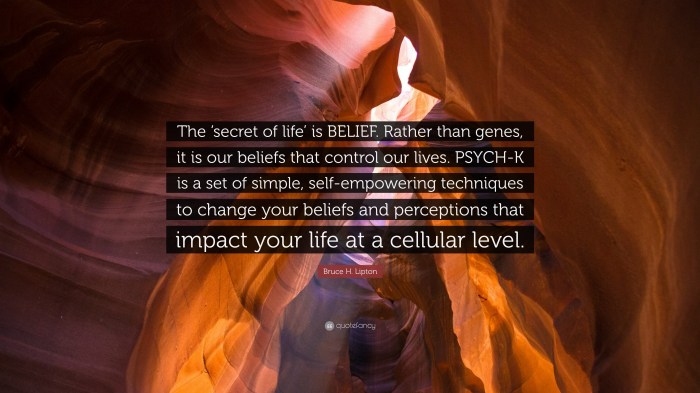Ever feel like you’re stuck in a rut, even when you’re putting in the effort? Maybe you’ve been told things like “you’re not good at math” or “you’ll never make it big” – those are borrowed beliefs, and they can be holding you back from achieving your full potential.
They’re like a secret ingredient, shaping your life without you even realizing it. Think of it like this: Imagine you’re trying to bake a cake, but you’ve been handed a recipe with a few hidden, off-limits ingredients.
You might end up with a cake that tastes okay, but it won’t be the best it could be. That’s what happens when we let borrowed beliefs influence our lives – we’re missing out on the full flavor of our potential.
This article dives into the world of borrowed beliefs, exploring how they impact our lives and how to challenge them to create a more fulfilling and authentic experience. We’ll explore how to identify those sneaky limiting beliefs, replace them with empowering ones, and ultimately unlock the best version of ourselves.
Understanding Borrowed Beliefs
We all have beliefs that shape our perspectives and influence our actions. But have you ever stopped to think about where these beliefs come from? Many of our beliefs are not our own; they are borrowed from others. These borrowed beliefs can be powerful forces in our lives, influencing everything from our self-esteem to our relationships.
The Influence of Borrowed Beliefs
Borrowed beliefs are beliefs that we adopt from others, often without realizing it. These beliefs can come from our parents, teachers, friends, mentors, or even society as a whole. They can be positive or negative, and they can shape our thoughts, feelings, and behaviors.
Common Borrowed Beliefs and Their Origins
Borrowed beliefs can come from a variety of sources, and they can be deeply ingrained in our thinking. Here are some examples of common borrowed beliefs and their origins:
- “Money doesn’t grow on trees.”This belief, often instilled in childhood, emphasizes the importance of financial responsibility and hard work. It can stem from parents’ experiences with financial struggles or societal expectations around financial security.
- “You can’t be happy without a partner.”This belief, often perpetuated by romantic comedies and societal norms, can lead to feelings of inadequacy or pressure to find a partner. It can stem from societal expectations around romantic relationships and the emphasis on finding a “soulmate.”
- “You can’t be successful without a college degree.”This belief, often reinforced by educational institutions and societal expectations, can create pressure to pursue higher education even if it’s not the right path for everyone. It can stem from the perceived value of education in society and the belief that a degree is a ticket to success.
Borrowed belief is like that one friend who always knows the best party – you just gotta trust them and show up! It’s about embracing those awesome vibes, the kind that make you feel like you’re living your best life.
Hernan Cattaneo, the legendary DJ, is a perfect example of someone who’s tapped into that borrowed belief, channeling it into his music and creating a whole world of epic beats for people to lose themselves in HERNAN CATTANEO The DJ’s dream.
It’s about letting go, having fun, and knowing that the good times are just waiting to happen. So, embrace the borrowed belief, find your groove, and get ready to party!
Impact of Borrowed Beliefs
Borrowed beliefs can have a profound impact on our lives, shaping our self-esteem, goals, and relationships.
Impact on Self-Esteem
Borrowed beliefs can either bolster or undermine our self-esteem. For example, if we believe that we are not good enough because we have been told that we are not smart or talented enough, we may struggle with self-doubt and low self-esteem.
On the other hand, if we believe that we are capable and worthy of love and success, we may have a higher sense of self-worth.
So, you wanna live your best life, right? You know, like a total boss? Well, sometimes that means ditching the borrowed beliefs and embracing your own truth. And when it comes to prepping for anything life throws at you, that truth might just be a well-stocked pantry and a solid survival plan.
Check out The Ultimate Survival Guide The #1 Worst-Case Scenario Survival book for saving lives preparing for a disaster stockpiling having a pantry Bushcraft and living off the grid for some seriously rad tips on staying ahead of the game.
But remember, the most important thing is knowing yourself and your own beliefs, because that’s what’ll help you truly live your best life, no matter what.
Impact on Goals
Borrowed beliefs can also influence our goals and aspirations. If we believe that we are not capable of achieving our dreams, we may be less likely to set ambitious goals or pursue our passions. Conversely, if we believe that we can achieve anything we set our minds to, we may be more likely to set challenging goals and strive for excellence.
Impact on Relationships
Borrowed beliefs can also affect our relationships. If we believe that relationships are difficult or that we are not worthy of love, we may have trouble forming healthy and fulfilling relationships. Conversely, if we believe that relationships are a source of joy and support, we may be more likely to build strong and loving connections with others.
So, you’re ready to level up your life, right? You’re not alone! Tons of people are on that journey, and it’s all about finding that secret ingredient for success. Well, Download And Listen Here to get the scoop on “Borrowed Belief,” the secret weapon for making your dreams a reality.
It’s all about embracing the power of positive thinking and believing in yourself, even when it feels like the odds are stacked against you. It’s like having a secret superpower, you know?
Identifying and Challenging Borrowed Beliefs

Identifying and challenging borrowed beliefs is a crucial step in living your best life. It’s about taking ownership of your thoughts and beliefs, and separating those that truly serve you from those that hold you back.
Identifying Limiting Borrowed Beliefs
Identifying limiting borrowed beliefs requires a combination of self-reflection and awareness. It’s about recognizing the patterns in your thoughts and behaviors, and questioning where they originated.
- Pay attention to your self-talk:Notice the negative or limiting thoughts that pop up. These might include statements like “I’m not good enough,” “I can’t succeed,” or “I’m not worthy.” Ask yourself, “Where did I hear this before?”
- Observe your reactions:How do you react to certain situations? Do you feel anxious, stressed, or defeated? This could indicate a limiting belief that is affecting your ability to cope. For example, if you feel anxious about public speaking, you might have a borrowed belief about being judged or inadequate.
- Reflect on your values:What are your core values? Do your beliefs align with these values? If not, they might be borrowed beliefs that you’ve internalized from others.
Challenging Borrowed Beliefs
Once you’ve identified a limiting borrowed belief, you can start to challenge it. This process involves questioning the belief, examining the evidence, and replacing it with a more empowering one.
- Question the source:Where did you get this belief from? Was it from your parents, teachers, friends, or society?
- Gather evidence:Is there any evidence to support this belief? Or is it based on assumptions or generalizations?
- Consider alternatives:What other perspectives or beliefs could be true?
- Challenge the belief:Write down the limiting belief and then write down its opposite. For example, if you believe “I’m not good enough,” challenge it with “I am good enough, and I have a lot to offer.”
- Replace it with a positive belief:Replace the limiting belief with a positive, empowering belief that aligns with your values.
Evaluating the Validity of Beliefs
Here are some questions to help you evaluate the validity of your beliefs:
- Is this belief based on facts or feelings?
- Is this belief serving me or holding me back?
- Is this belief empowering or limiting?
- Is this belief aligned with my values?
- Would I want my child or someone I love to believe this?
Embracing Authentic Beliefs

You’ve done the work of identifying and challenging borrowed beliefs, now it’s time to embrace the beliefs that truly resonate with you – your authentic beliefs. This is where you get to rewrite your story, aligning your beliefs with your values and aspirations.
Building a Foundation of Authentic Beliefs
Authentic beliefs are the foundation of a fulfilling life. They guide your decisions, shape your actions, and ultimately determine your level of happiness and success. To build a strong foundation of authentic beliefs, you need to engage in a process of self-reflection and introspection.
- Identify Your Core Values:Your core values are the principles that guide your life. They represent what is most important to you, and they should be the foundation for your beliefs. Think about what matters most to you in life, such as honesty, integrity, compassion, or creativity.
You can use a journal, a values assessment tool, or simply spend some time reflecting on your life experiences to identify your core values.
- Explore Your Beliefs:Once you’ve identified your core values, you can start to examine your beliefs to see if they align with those values. Ask yourself questions like, “What do I believe about myself, the world, and my potential?” Write down your beliefs and then assess them against your core values.
Do they support your values, or do they contradict them?
- Challenge Limiting Beliefs:Limiting beliefs are negative thoughts and assumptions that hold you back from achieving your goals. They can be based on past experiences, societal expectations, or even things you’ve heard from others. Once you identify your limiting beliefs, you can start to challenge them.
Ask yourself questions like, “Is this belief truly true? Is it serving me? What would happen if I believed the opposite?”
Book Review: Borrowed Beliefs and Living Your Best Life

This book offers a fresh perspective on personal growth, emphasizing the impact of “borrowed beliefs” on our lives and how to identify and challenge them to unlock our true potential. The author argues that many of our beliefs are not our own but rather inherited from family, society, and culture.
These beliefs can limit our choices, hold us back from pursuing our dreams, and even affect our physical and mental well-being.
You know, sometimes the best way to find your own truth is to learn from those who came before you. Like, think about all the wisdom in the Bible! It’s a total treasure trove of life lessons, and you can pass them on to the next generation with the New Testament Dot Markers Activity Book for Kids Come Follow Me Ages 2+ Big Easy Dots Paint Dauber Bible Coloring.
It’s like a fun, colorful way to learn about faith, and maybe even discover your own “borrowed beliefs” that can help you live your best life.
Comparison with Other Perspectives
The book’s central thesis aligns with other perspectives on personal growth and self-discovery, but it offers a unique framework for understanding and addressing the root causes of limiting beliefs.
| Book’s Perspective | Other Perspectives | Comparison |
|---|---|---|
| Borrowed beliefs are often subconscious and can be detrimental to our well-being. | Cognitive Behavioral Therapy (CBT) focuses on identifying and challenging negative thoughts and beliefs. | Both emphasize the importance of understanding our thoughts and beliefs, but the book specifically addresses the influence of inherited beliefs. |
| Identifying and challenging borrowed beliefs is crucial for personal growth. | Self-help books often emphasize self-awareness and personal responsibility for our choices. | The book provides a concrete method for achieving self-awareness by focusing on the origin of our beliefs. |
| Embracing authentic beliefs leads to a more fulfilling life. | Positive psychology encourages focusing on strengths and cultivating positive emotions. | Both perspectives promote living a life aligned with our values, but the book emphasizes the importance of understanding our beliefs as the foundation for this alignment. |
Real-Life Application
The book’s concepts can be applied to various real-life scenarios and challenges. For example, someone struggling with career dissatisfaction may discover that their belief in the need for a stable, high-paying job is borrowed from their parents’ generation. By challenging this belief, they can explore alternative career paths that align with their true passions.
Personal Insights and Takeaways
Reading this book has been a transformative experience for me. I have become more aware of the many borrowed beliefs I have internalized throughout my life. By consciously questioning these beliefs and replacing them with my own authentic ones, I feel empowered to pursue my goals with greater confidence and clarity.
I have also gained a deeper understanding of the impact of my beliefs on my relationships, my health, and my overall well-being.
Summary
So, are you ready to ditch the limiting ingredients and bake a life that’s truly delicious? By understanding and challenging borrowed beliefs, you can start to rewrite your recipe for success. Remember, you’re the chef of your own life, and it’s time to create a masterpiece.
Start by taking a look at your own beliefs, questioning those you’ve inherited, and embracing the empowering ones that truly resonate with your values. It’s time to ditch the old recipe and start writing your own!
Query Resolution
What are some examples of borrowed beliefs?
Some common examples include: “I’m not good at math,” “I’m not creative,” “I’m not worthy of love,” or “I’ll never be successful.” These beliefs are often passed down from parents, teachers, or society.
How can I tell if a belief is borrowed?
Ask yourself: Where did this belief come from? Is it truly mine, or did I adopt it from someone else? Does it serve me, or hold me back?
What if I can’t seem to get rid of a limiting belief?
It takes time and practice to challenge deeply ingrained beliefs. Be patient with yourself, and focus on replacing the limiting belief with a more empowering one. It’s like building a new habit – it takes repetition and commitment.
What are some strategies for replacing limiting beliefs?
Try affirmations, visualization, and practicing gratitude. Surround yourself with positive influences, and seek out support from others who believe in you.

